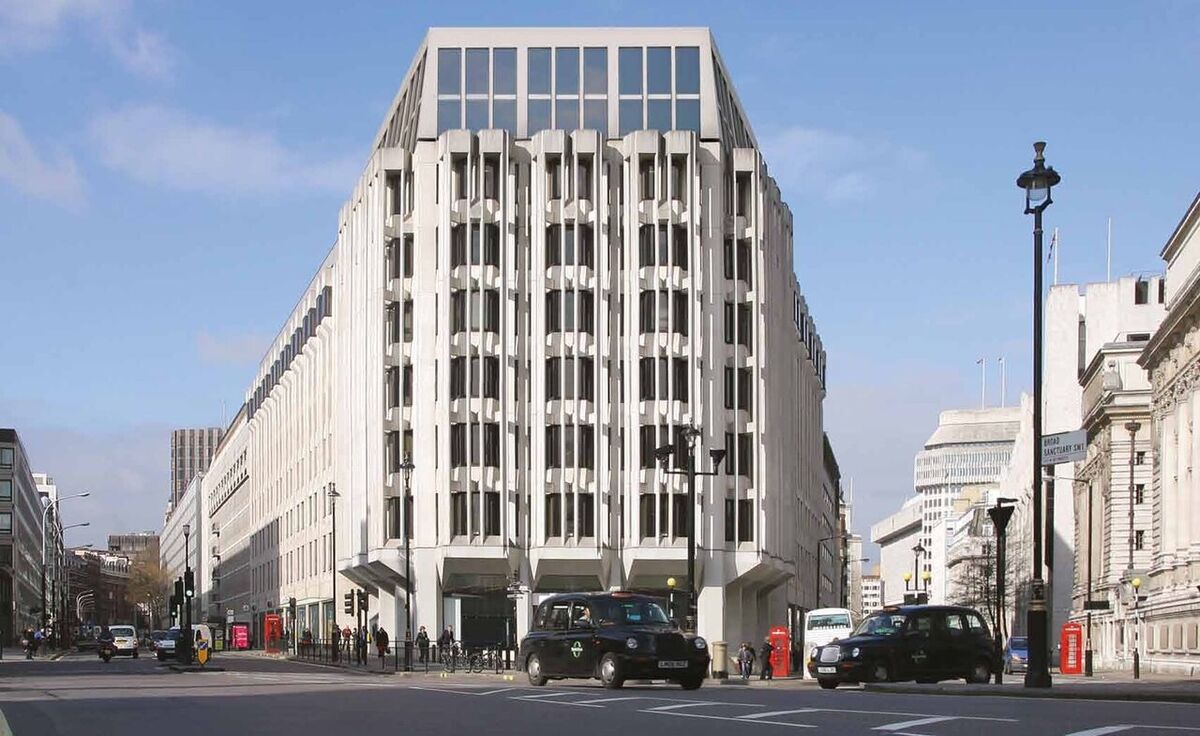
Iran, UK Renew Trade Commitments
EghtesadOnline: High-level trade representatives of Iran and the UK met on Monday in Tehran and reiterated their commitment to boost bilateral ties in the face of returning US sanctions.
Lord Norman Lamont, the British trade envoy to Iran, met with Gholamhossein Shafei, the president of Iran Chamber of Commerce, Industries, Mines and Agriculture, for reassurances that Iran will have the support it was promised.
"Iran and markets around the country are of utmost importance to the British government and we hope to have an effective presence in these markets," Lamont was quoted as saying by the news website of ICCIMA.
He said it is deplorable that the ordinary people of a country will be deprived of receiving basic medicinal and hygienic services, according to Financial Tribune.
"Therefore, the UK is striving to continue its cooperation with Iran in the fields of health and medicines," he added.
US President Donald Trump announced on May 8 his country's withdrawal from JCPOA and promised to return harshest sanctions in history against Iran.
The first round of renewed sanctions entered into force on August. The unilateral US sanctions reimposed on August 6 prohibit Iran's purchase of US dollars and precious metals, part of a larger move that attempts to cut the country off from the international financial system.
A second tranche of US sanctions on Iran's oil and gas sector is set to go into effect on Nov. 4.
Lamont, who was accompanied by British Ambassador to Iran Rob Macaire, referred to financial resources and bilateral banking ties as one of the most important issues in continuing cooperation.
He also criticized the approach taken by the US government in unilaterally withdrawing from the Joint Comprehensive Plan of Action, the formal name of Iran's nuclear deal with world powers signed in 2015 and implemented in 2016. He said the British government sees JCPOA as a major international achievement and remains committed to it.
Shafei referred to all the ups and downs in the level of political ties between Iran and the UK in the past few years, saying economic and trade ties never ceased despite all political fluctuations.
"We hope that this trend will continue in the future," the private sector representative said.
He also praised the stance adopted by the UK against US unilateralism and pointed out that small- and medium-sized enterprises have now emerged as the most important link between Iran and Europe.
Shafei further called on British firms to employ this capacity and develop the level of their ties with Iran and the regional market in this vein.
"Iran intends to renovate, reinvigorate and develop rail lines inside and outside cities and this is an area in which Iran and the UK can easily cooperate on," Shafei said, also calling on the British side to facilitate the travel of traders between the two nations.
> EU's New Payment Mechanism
The European Union said on Monday its members would set up a payment system to allow oil companies and businesses to continue trading with Iran and evade US sanctions.
Iran and the European Union announced their defiance of US President Donald Trump's administration after high-level talks at the United Nations among the remaining members of the accord.
The countries said in a statement that they were determined "to protect the freedom of their economic operators to pursue legitimate business with Iran", AFP reported.
With the United States and the dollar dominating so much of global trade, the statement said the new mechanism would "facilitate payments related to Iran's exports [including oil] and imports, which will assist and reassure economic operators pursuing legitimate business with Iran."
EU foreign policy chief, Federica Mogherini, speaking at the United Nations alongside Iranian Foreign Minister Mohammad Javad Zarif, said the countries were still working out the technical details.
"In practical terms, this will mean that EU member states will set up a legal entity to facilitate legitimate financial transactions with Iran and this will allow European companies to continue to trade with Iran in accordance with European Union law and could be open to other partners in the world," she told reporters.
> Optimism About Ongoing Currency Crisis
Elsewhere during the Monday meeting, the ICCIMA chief pointed to the depreciation of the rial in recent months, saying Iran will ultimately manage the situation, as many countries before it underwent similar conditions and emerged unscathed.
"In light of its infrastructures, resources and capacities, Iran will certainly be able to pass this stage and overcome the problems," he said, opining that the ongoing currency crisis does not follow economic reasoning and is mostly psychological.
Iran's currency has lost more than two-thirds of its value in recent months due to expectation of returning US sanctions. It registered another all-time low against the US dollar on Tuesday.
Shafei then outlined Iran's action plan with the Financial Action Task Force and wider bank reforms currently pursued on a large scale. He said bank reforms have partially been implemented while "it seems that there will be no problems with the FATF issue, as it will be finalized soon considering efforts by the parliament and other entities".
Iran has until mid-October to make good on articles of its action plan with the global entity in charge of setting standards for anti-money laundering and combating financing of terrorism measures.
From its four bills to appease the FATF, it has finalized one while the three others are in final stages.


